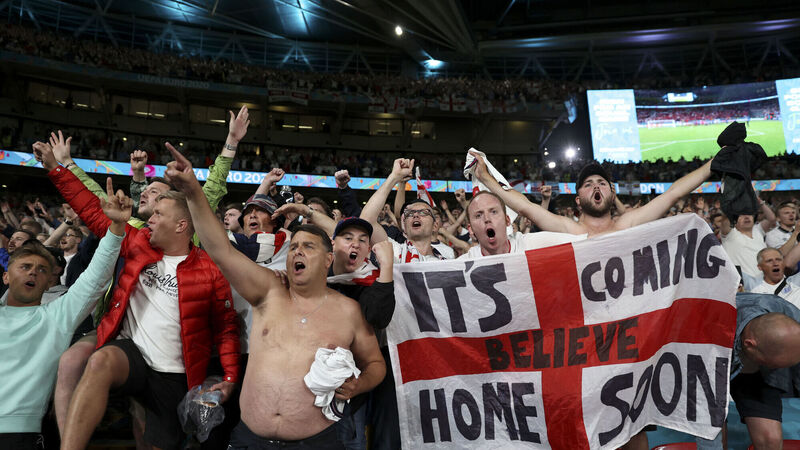Michael Clifford: Are you supporting our neighbours tonight?

England fans celebrate their side's 2-1 semi-final win against Denmark at Wembley Stadium on Wednesday. Picture: AP /Carl Recine
That should have been the case for the current Euro 2020. The quality on display, allied to the early stage of evolution of the current Irish team, means it may have turned a little ugly if the Republic was in attendance.












